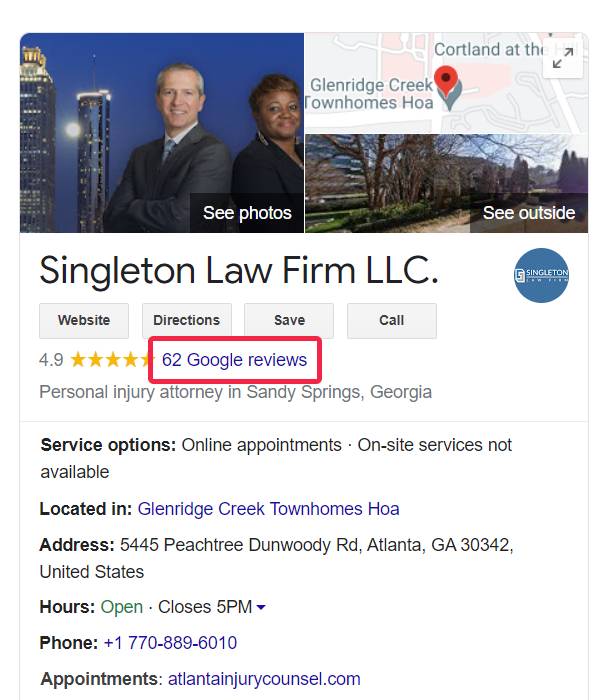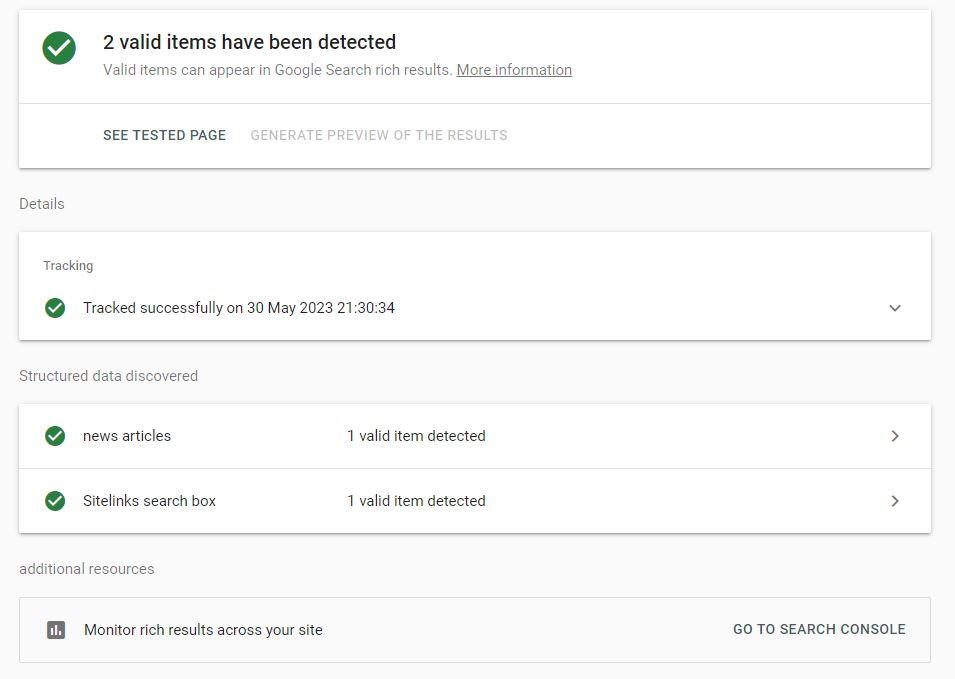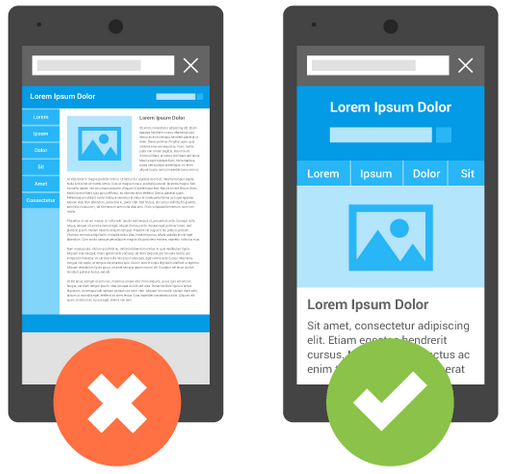Local SEO Solutions: 8 Key Strategies to Unleash Your Local Visibility
Local business ranking on Google is determined by several key factors, including relevance, distance, and prominence.
To maximize your business’s online presence and achieve success in the local market, it is essential to implement effective local SEO solutions and strategies.
The good news is that if you optimize your business for local search you will be ahead of 70% of businesses who do not do it.
This article will explore a wide range of proven local SEO solutions and techniques that can significantly enhance your business’s visibility and drive positive outcomes in the local community.
Do you operate a multi-location business? If that’s the case, we invite you to explore our comprehensive article on Mastering Multi-Location SEO for Achieving Local Business Success.
In this article:
1. Optimizing your Google Business Profile is key for Local SEO
When it comes to achieving success in local SEO, having a well-optimized Google Business Profile (GBP) is crucial. Your GBP serves as a digital storefront, making it essential to optimize it effectively.
To ensure your profile is fully optimized, focus on completing the following key items:
Complete and Accurate Business Information
It is vital to provide complete and accurate information about your business, including the correct phone number, address, and business categories. This helps customers easily find you and signals trustworthiness to search engines.
Pro tip: Opting for multiple categories that accurately describe your business in your Google Business Profile can help increase your visibility, enhance relevance, and improve discoverability. Share on XUp-to-Date Business Hours
Double-check and update your business hours, including special hours for holidays or events. Accurate business hours enable customers to rely on your establishment and avoid any frustration. It also establishes your reputation for reliability.
Showcase Your Business with Photos
Photos are one of the top three trust signals that influence consumers’ decisions to choose a business.
Enhance your GBP profile by adding high-quality photos that accurately represent your brand and showcase what makes your business unique.
Verify Your Location
Verifying your location on Google establishes ownership and boosts your local ranking. It validates the authenticity of your business, provides access to additional features, and improves your visibility in local search results.
By focusing on these aspects and optimizing your Google Business Profile, you can significantly improve your local visibility and attract more customers. Your well-optimized GBP serves as a powerful tool to make a positive first impression and establish trust with your target audience.
2. Generating Local Citations is still valuable for local SEO in 2024
When it comes to local search engine optimization (Local SEO), local citations are like digital signposts that help search engines and potential customers discover and verify your business’s existence.
These citations consist of references to your business’s NAP details, which typically include the name of your business, its physical address, and contact number.
By appearing in local online directories and review platforms, local citations provide valuable signals to search engines about the relevance and credibility of your business within a specific geographic area.
The process of generating local citations involves submitting your business information to various platforms, such as online directories, industry-specific websites, and popular review sites like Google Business Profile, Yelp, or TripAdvisor.
These platforms serve as authoritative sources where potential customers search for businesses in their local vicinity. By ensuring your business is listed accurately and consistently across these platforms, you enhance its visibility, accessibility, and trustworthiness.
Consistency is key when it comes to local citations.
It is essential to ensure that your business’s NAP details are identical across all platforms. Even minor discrepancies in spelling, abbreviations, or formatting can confuse both search engines and potential customers, leading to a negative impact on your local SEO efforts.
By maintaining uniformity in your business information, you establish a strong and reliable online presence, making it easier for search engines to associate your citations with your business and validate its authenticity. Share on X3. Encouraging Positive Reviews for a Strong Online Reputation
Online reviews play a vital role in shaping a business’s reputation and influencing its local SEO performance. Positive reviews not only attract potential customers but also improve your business’s visibility and credibility in search engine results.

Make sure you implement these effective strategies for encouraging customers to leave positive reviews:
Provide Exceptional Customer Service
The foundation of generating positive reviews lies in delivering outstanding customer service.
When customers have a positive experience with your business, they are more likely to share their satisfaction through reviews.
Train your staff to provide exceptional service, address customer concerns promptly, and go the extra mile to exceed expectations.
Request Reviews from Happy Customers
Actively ask satisfied customers to leave a review.
After a successful transaction or interaction, consider sending a personalized follow-up email or SMS thanking them for their business and kindly requesting them to share their experience on review platforms.
Make the process as easy as possible by providing direct links or instructions for leaving a review on popular platforms such as Google Business Profile, Yelp, or industry-specific review sites.
Offer Incentives or Rewards
Consider implementing a review incentive program to motivate customers to share their positive experiences.
This can include offering a small discount on their next purchase, entering them into a giveaway or contest, or providing exclusive access to special promotions.
However, it’s important to ensure that these incentives comply with the guidelines of review platforms and do not violate any ethical or legal standards.
Leverage Social Media and Email Marketing
Utilize your social media channels and email marketing campaigns to encourage customers to leave reviews.
Share positive reviews on your social media platforms and express gratitude to customers who have already provided feedback.
Respond to Reviews Promptly
Reply to both positive and negative reviews, expressing gratitude for positive feedback and addressing any concerns or issues raised in negative reviews.
By responding promptly and professionally, you show potential customers that you value their feedback and are dedicated to delivering excellent service.
Remember, reviews are not only a reflection of customer satisfaction but also an opportunity to showcase your commitment to excellence and engage with your audience.
4. Optimizing your Website for Local Keywords
By optimizing your website for local keywords, you can significantly improve your local search visibility and attract targeted traffic from your desired geographic area.
Embrace the following local SEO solutions, and watch as your website gains prominence in local search results, driving relevant traffic and potential customers to your business:
Conduct Local Keyword Research

Start by researching and identifying local keywords that are relevant to your business and target audience. These keywords should include location-specific terms that align with your target market.
Utilize keyword research tools and platforms to explore popular local search terms, long-tail keywords, and phrases that your potential customers are likely to use when searching for products or services in your area.
Optimize Metadata with Local Keywords
Optimizing the metadata of your website, including title tags, meta descriptions, and alt tags is one of the easiest local SEO solutions you can implement.
Incorporate relevant local keywords naturally within these elements while ensuring they accurately describe the content of each page.
By including location-specific terms in your metadata, you increase the chances of your website appearing in local search results.
Integrate Location Specific Keywords in your Content
Create high-quality, informative, and engaging content that incorporates your business location.
Develop pages or blog posts centered around local topics, events, or news that are relevant to your business.
Include local keywords within the headings, subheadings, and body of the content while maintaining a natural flow.
Remember, the content should provide value to your audience while optimizing for local search.
Utilize Location-Specific Landing Pages
If your business serves multiple locations, consider creating location-specific landing pages.
Each page should target a specific location and feature content tailored to that area.
Optimize these landing pages with local keywords, including the location name in the URL, headings, and content.
This approach helps search engines understand the geographic relevance of your website and improves your visibility for location-specific searches.
Incorporate Local Landmarks and Citations
Highlight local landmarks, attractions, or well-known places in your content. Mentioning these local references not only adds credibility but also increases the relevance of your website to the local area.
5. Developing a Local Content Strategy
Developing a robust local content strategy is crucial for establishing authority, building brand recognition, and attracting local customers.
By creating and sharing content that is tailored to your local audience, you can engage with the community, foster relationships, and drive targeted traffic to your website.
Make sure to check out the following insights on how to effectively implement a local content strategy:
Understanding Your Local Audience
Before diving into content creation, it’s essential to understand your local audience.
Conduct thorough market research to gain insights into their demographics, interests, preferences, and pain points.
This information will guide you in creating content that resonates with your target audience and addresses their specific needs.
Publishing Relevant Blog Posts, Articles, and Guides
One of the core elements of a successful local content strategy is regularly publishing informative and engaging blog posts, articles, and guides.
Among a range of local SEO solutions, you can consider the following approaches:
Local Guides
Create comprehensive guides that highlight local attractions, events, and resources. These guides can serve as go-to references for both residents and visitors, positioning your brand as a reliable source of local knowledge.
How-to Articles
Craft articles that provide step-by-step instructions or tips on topics related to your industry or niche, with a local twist. For example, if you run an SEO agency, you could write an article on “The Best Online Directories for Businesses in Columbus” or “Top 10 Local SEO strategies to rank your business in Columbus.”
Local Stories
Share inspiring stories about local businesses, individuals, or community initiatives. Human-interest stories have the power to create emotional connections with your audience and showcase your commitment to the local community.
Covering Local Events and News
Keeping up with local events and news is essential for staying relevant and engaging with your target audience.
Among a range of local SEO solutions, you can consider the following strategies:
Event Coverage
Attend and cover local events relevant to your industry. Write articles or create videos that capture the highlights, share insights, and provide valuable takeaways. This approach demonstrates your active involvement in the local community and positions your brand as an industry authority.
News Analysis
Keep an eye on local news and trends that relate to your business or industry. Share your analysis, opinions, or expert insights through blog posts or social media updates. This positions your brand as a thought leader and encourages audience engagement.
Leveraging User-Generated Content
Encourage your local customers to contribute to your content strategy through user-generated content (UGC).
UGC can take the form of customer testimonials, reviews, photos, or videos.
By featuring UGC on your website or social media channels, you not only showcase satisfied customers but also create a sense of community and authenticity around your brand.
6. Leveraging Social Media for Local Engagement
Social media platforms present tremendous opportunities for local engagement.
By identifying relevant platforms, developing a consistent multichannel strategy, sharing local-centric content, fostering community engagement, and leveraging social media advertising, you can strengthen your connection with the local audience, establish your brand as a community supporter, and ultimately drive growth for your business.
Identifying Relevant Social Media Platforms
Not all social media platforms are created equal, and it’s crucial to identify the ones that align with your business and target audience.
Conduct thorough research to understand which platforms are popular among your local community.
Consider factors such as demographics, user engagement, and the platform’s suitability for your industry.
By focusing your efforts on the right platforms, you can maximize your impact and ensure that your message reaches the intended audience.
Developing a Consistent Multichannel Strategy
To effectively engage with your local audience, it’s essential to adopt a consistent multichannel strategy.
This means cohesively utilizing multiple social media platforms to reinforce your brand and messaging.
Maintain a consistent brand voice, visual identity, and content strategy across all platforms. By doing so, you can create a seamless experience for your audience, regardless of the platform they prefer.
Consistency is key to building trust and recognition among your local community.
Sharing Local-Centric Content
One of the most effective ways to engage with your local audience is by sharing content that resonates with them.
Develop a content strategy that highlights local news, events, and stories. Showcase your involvement in the community by featuring local partnerships, sponsorships, or initiatives.
By creating content that reflects the interests and values of your local audience, you can foster a deeper connection and increase engagement with your brand.
Fostering Community Engagement
Social media provides an excellent platform to foster community engagement and build a loyal customer base.
Encourage your followers to share their experiences, opinions, and feedback. Respond promptly to comments, messages, and mentions to show that you value their input. Organize contests, polls, or giveaways to encourage active participation.
By creating a sense of belonging and involvement, you can turn your local audience into brand advocates who will actively promote your business within the community.
Leveraging Social Media Advertising
In addition to organic engagement, social media advertising can significantly enhance your reach to a wider local audience.
Platforms like Facebook, Instagram, and Twitter offer powerful targeting options that allow you to narrow down your audience based on location, demographics, interests, and behaviors.
Invest in targeted advertising campaigns to raise awareness, promote local events or offers, and attract new customers.
Social media advertising provides a cost-effective and measurable way to expand your local reach and generate tangible results.
7. Implementing Local Schema Markup
Implementing local schema markup on your website can significantly enhance your visibility in local search results, as it provides search engines with structured data that helps them understand the content and context of your web pages.

What is Local Schema Markup?
Local schema markup, also known as structured data or schema.org markup, is a standardized format that provides search engines with additional information about your business, such as its name, address, phone number, operating hours, reviews, and more.
By implementing this markup, you make it easier for search engines to interpret and display relevant information in local search results, increasing your website’s visibility to potential local customers.
What are the benefits of using the Local Schema Markup?
By utilizing local schema markup on your website, you can enjoy several benefits:
- Improved Local Search Rankings: Local schema markup helps search engines understand the local context of your business, allowing them to rank your website more accurately in local search results. This increases the chances of your website appearing higher in relevant local searches.
- Enhanced Search Result Appearance: When search engines display your website in search results, local schema markup enables them to show additional information alongside the link, such as your business’s ratings, reviews, address, and phone number. This enriched display can attract more clicks and improve user engagement.
- Increased Local Business Visibility: With local schema markup, your business can appear in specialized search features like Google’s Local Pack or Maps. These features highlight local businesses to users searching for specific products or services in their vicinity, increasing the visibility of your business to a highly targeted local audience.
How can you implement Local Schema Markup on Your Website?
To implement local schema markup on your website, follow these steps:
- Identify Relevant Schema Types: Determine the most appropriate schema types for your business, such as “LocalBusiness”, “Restaurant”, or “MedicalBusiness”. You can refer to the official schema.org website for a comprehensive list of schema types and their properties.
- Add Schema Markup to Web Pages: Insert the appropriate schema markup code on relevant web pages. Include essential information like your business name, address, phone number, operating hours, and other relevant details.
- Test and Validate the Schema Markup: Use Google’s Structured Data Testing Tool or other schema markup validators to check if your schema markup is correctly implemented and free of errors. Address any issues or warnings to ensure proper functionality.
Tools for Identifying and Fixing Structured Data Issues
Maintaining the accuracy and correctness of your schema markup is crucial. The following tools can help you identify and fix structured data issues:
- Google Search Console: Google Search Console provides reports on any errors or warnings related to structured data on your website. It also offers insights into your website’s performance in search results.
- Schema Markup Validators: Use the Schema Markup Validator to validate your schema markup and identify any errors or warnings that need attention.
- Rich Results Testing Tool: This tool, offered by Google, allows you to test how your structured data markup appears in search results. It helps ensure that your markup is generating the desired rich results display.
By utilizing these tools and regularly monitoring your website’s structured data, you can ensure that your local schema markup remains accurate and up to date, maximizing its effectiveness in improving your local search visibility.
8. Acquiring Local Backlinks
Effective link-building plays a pivotal role in your SEO strategy. Here are some proven techniques to bolster your local online presence:
- Collaborate with local organizations and institutions to showcase your business on their websites.
- Participate in local events or sponsor community activities, earning backlinks from event listings or partners.
- Connect with fellow local businesses for mutually beneficial link exchanges.
- Partner with local influencers to spotlight your business to their engaged audience.
- Seek coverage in local publications and blogs, sharing your unique story and expertise.
Remember, ethical link-building practices are key. Avoid purchasing links to maintain credibility and authority.
Additionally, consider integrating internal links within your content to enhance the overall quality of your web pages and provide valuable context for your visitors.
Bonus: Responsive Web Design

According to local SEO statistics (by ReviewTracker), the three most influential factors that shape consumers’ decisions when choosing a local business online are photos, Google reviews, and position on the search engine results page (SERP).
Another interesting finding from their study is that 57% of local search queries are conducted through mobile devices or tablets.
Given that it is widely acknowledged that Google prioritizes mobile-friendly pages on mobile search results, it is crucial to optimize your website for mobile devices to seize these opportunities and avoid missing out.
57% of local search queries are submitted using a mobile device or tablet. Share on XConclusion
In conclusion, a comprehensive local SEO strategy is essential for boosting your business’s online presence in the local market. This article has explored various local SEO solutions that can help you achieve this goal.
By optimizing your Google Business Profile, generating local citations, encouraging positive reviews, optimizing your website with local keywords, developing a local content strategy, leveraging social media, and implementing local schema markup, you can significantly improve your visibility and attract local customers.
Embrace these local SEO solutions, take action, and watch your business thrive in the local market.
How Agile can help
If you’re aiming to expand your business, you understand the importance of increased visibility. Search Engine Optimization (SEO) can assist you in achieving this by boosting your website’s ranking in search engine results.
At Agile, we can help you dominate the search engine results in your target area, and reach a larger audience actively seeking your offerings.
By focusing on your most profitable local keywords, we can enhance your online presence and draw more local customers to your business.
With our knowledge and experience, you can trust that your website will be optimized to the highest level, enabling you to accomplish your business objectives.

Our commitment to excellence is underscored by our recognition as a Top SEO Company in the United Kingdom for Business Services.
I am a managing partner at Agile Digital. A graduate of Modern Balkan history, I made a complete pivot in my career when, together with Juan Pineda, we founded a nearshore design and development studio Sofyma in 2009, followed by our digital agency Agile several years later. Over time, I have worked on hundreds of digital projects from small startups to global brands. I enjoy writing in our Blog about topics I am actively involved in at work.
Related
Articles



